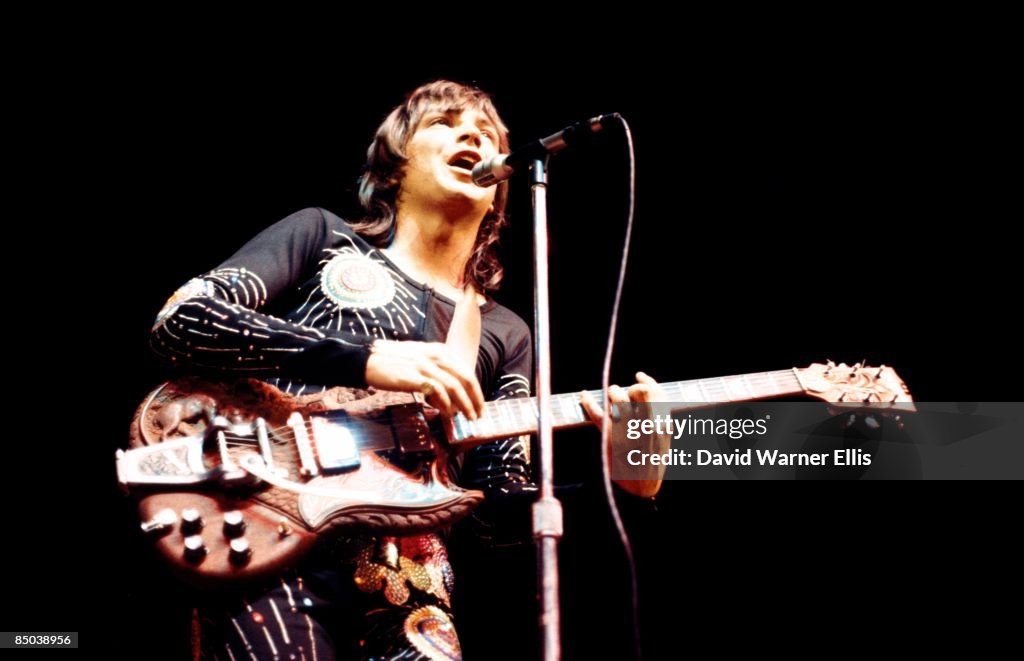
A Heartfelt Plea for Lasting Affection and Trust in a Tumultuous Life
In the mid-1970s, the world was still catching its breath from the supernova of fame that was David Cassidy. Having soared to stratospheric heights as the handsome, wholesome Keith Partridge on television’s The Partridge Family, the young man found himself in a peculiar, often painful transitional phase. His 1975 single, “Darlin’,” perfectly encapsulates this period—a poignant cover that speaks volumes about his artistic ambition and the emotional weariness beneath the teen idol veneer. Released on his fifth solo album, The Higher They Climb, The Harder They Fall, this track marked a significant move, as it was his first album on RCA Records and a deliberate attempt to shed the bubblegum pop image for a more serious, ‘blue-eyed soul-pop’ sound.
The song “Darlin’,” originally a 1967 R&B-infused track by The Beach Boys (written by Brian Wilson and Mike Love), became a substantial chart hit for Cassidy overseas. While it didn’t register on the US Billboard Hot 100, its success in the UK was undeniable, peaking at Number 16 on the Official Singles Chart. It also performed respectably across Europe and the Commonwealth, hitting Number 20 in Ireland, Number 17 in Sweden, and even reaching the Number 1 spot in South Africa, where his star power remained immensely strong. The single’s charting success came in late 1975, a period when Cassidy was actively trying to steer his career away from the manufactured hysteria that had tragically culminated in the death of a young fan at one of his concerts in 1974—an event that profoundly scarred him and led him to quit touring for a time.
The significance of “Darlin'” goes deeper than chart numbers, however. It’s a raw, vulnerable plea for sincerity and assurance in a relationship, perfectly mirroring the artist’s own inner turmoil at the height of his fame and subsequent burnout. The lyrics, “Darlin’, I got to know, ’cause my life is not complete / You gotta make me sure, that your love will never leave,” take on a heightened resonance when sung by a performer who felt his whole existence was transient, a spectacular but fragile bubble that could burst at any moment. The original Beach Boys version was sung with a soulful, earnest simplicity, but Cassidy’s rendition, which was co-produced by former Beach Boy Bruce Johnston, imbues the track with the weary soul of someone who has seen the dark side of adoration. The arrangement, with its lush yet driving instrumentation, showcased a vocal maturity in Cassidy that often got overshadowed by his teen idol status. It’s a testament to his genuine love for music, his yearning to be seen as a credible artist, and his desire for a stable, true connection amidst the chaos of a life lived in the blinding spotlight.
When we listen to “Darlin'” today, especially those of us who remember the frenetic ’70s, it’s not just a cover song; it’s a time capsule. It carries the weight of a young man’s battle against a monolithic, crushing public image and his heartfelt search for something real. It’s a nostalgic nod to the blue-eyed soul of the era, but also a melancholic echo of the personal struggles that often accompany spectacular fame. It’s a song for anyone who has ever looked at the one they love and desperately asked, “Are you really mine to keep?”—a universal, timeless question that David Cassidy delivered with a soulful conviction that resonates decades later.